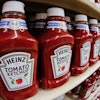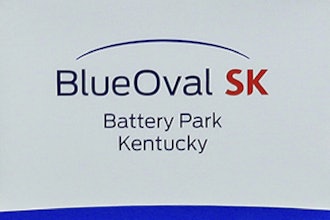LITTLE ROCK, Ark. (AP) — Two years after successfully reviving the Yarnell's ice cream brand from bankruptcy, Schulze & Burch Biscuit Co. of Chicago is still cautious.
"We want to avoid any of the problems with bringing in projects that don't have a profitable component to it," said Kevin Boyle, the president and CEO of Schulze & Burch, which bought nearly all of the assets of Yarnell Ice Cream Co. of Searcy for $1.34 million in 2012.
Schulze & Burch has reason to be cautious. Acquiring the Yarnell's brand was the Chicago company's first entry into the ice cream market. Founded in 1923, Schulze & Burch produces items such as toaster pastries and granola bars.
And buying a business out of bankruptcy can either be a bargain or a headache for buyers.
"I think for the most part it would be a burden to most people to buy a bankrupt business," said Bob Cantrell, executive broker at Cantrell-Griffin Business Brokers of Springdale. "There's a lot of dreamers" who think they can turn around a business that's been in bankruptcy and make it successful, Cantrell said. But it's not easy, he said, because there's a reason the company landed in bankruptcy in the first place.
Boyle, though, told Arkansas Business that he doesn't suffer from buyer's remorse. The Yarnell's brand has seen "double-digit growth in our same-store sales over the last year," he said, though he declined to give revenue numbers.
Boyle also said that Schulze & Burch will push to get private-label contracts to produce ice cream for other companies under their brand names. But he didn't have a timetable for when that might happen. "We're looking to fill some capacity at the plant with some strategic manufacturing partnerships," he said.
Part of the success of the relaunch of the brand, Boyle said, can be tied to the ice cream guru who helped build Yarnell's: Albert Yarnell, an inductee into the University of Arkansas' Business Hall of Fame.
"He has been a tremendous resource," Boyle said. "He's provided invaluable counsel to us as we've brought the brand back."
Even though Yarnell is not an employee, he has made sure the ice cream is "the same high quality that the brand had enjoyed," Boyle said.
Yarnell, 90, told Arkansas Business last week that he has "nothing but good feelings" toward Schulze & Burch. "I'm happy to do whatever I can for them," he said.
Yarnell also said that offering advice to Schulze & Burch "just seemed like the right thing to do" for a company that is located in his hometown.
Yarnell, a past president of the Searcy Chamber of Commerce, said, "It's what I was trained to do my whole life."
Boyle wasn't in the market to buy an ice cream company when he learned at the end of June 2011 that Yarnell's had suddenly shut its doors after being in business for nearly 80 years. About 200 people were out of work.
Since 2008, Schulze & Burch has operated a 600,000-SF baking plant in Searcy, and Boyle thought there might be some workers with food manufacturing experience looking for a job. "Our interest was really just getting some employees to come over to the bakery," Boyle said.
Yarnell's blamed the closing on rising fuel costs and a difficult dessert industry. The company also was burdened with debt. When Yarnell's filed for Chapter 7 liquidation in August 2011, its debts were $15.7 million against assets of only $8 million.
Boyle said Arkansas' economic development officials encouraged him to consider buying Yarnell's.
"We were kind of lukewarm on that," he said. "We really didn't want to get into the ice cream business."
But the more he considered it, the more he realized there were a number of pluses with the Yarnell's brand. And a big advantage to buying through the bankruptcy process was that Schulze & Burch wouldn't be responsible for Yarnell's debt.
It also wouldn't have the expense of Yarnell's truck fleet, which delivered ice cream for other companies.
Yarnell's facility also was modern, Boyle said, and because it was close to the existing Schulze & Burch's plant "we figured there were some good synergies in personnel."
When employees weren't needed to make ice cream, they could be transferred to the bakery and vice versa, he said. A number of Yarnell's employees wanted to go back to work for Yarnell's. "So we thought that was a real positive," Boyle said.
An asset that came free was the love Arkansans had for the product. Arkansans referred to Yarnell's as "the Arkansas ice cream," Boyle said. "And we said, 'Well, there's probably something here in terms of the value of that brand.'"
But there were just as many concerns.
One was the cost of operating the 50,000-SF ice cream plant. The utility bills, which included operating an ammonia system to freeze the ice cream, ran about $50,000 a month, Boyle said.
And if anything goes wrong with the ammonia system, "it's a very bad thing," he said.
Boyle said Schulze & Burch made sure there would be enough insurance coverage for the mechanical system if the ammonia system failed. The company also brought in ammonia experts to inspect the system as a precaution.
Another issue: After acquiring the property, generating sales would take time. "When you buy something out of bankruptcy, typically you have zero sales," Boyle said.
In addition, the plant is operational, "so it's expensive right after the acquisition without a sales base," Boyle said.
And he didn't know if the public had cooled toward Yarnell's after the product was unavailable for more than six months. "When something is off the shelf for a period of time, it tends to be forgotten," he said.
Also a concern: Would retailers give Yarnell's another shot after being left without inventory during the crucial Fourth of July week in 2011? "The retailers were told during the busiest ice cream-selling week of the year that Yarnell's was closing," Boyle said. "And that left them in a real bind."
In December 2011, Schulze & Burch won the auction to buy Yarnell's property, which included its plant, factory and warehouse equipment, for $1.301 million. It also bought Yarnell's intellectual property, which included its ice cream recipes, for $38,940. After Bankruptcy Judge James Mixon approved the sale on Jan. 9, 2012, Schulze & Burch began preparing the factory to turn out ice cream.
But there was an immediate emergency. Schulze & Burch had to locate a supplier for a 48-ounce ice cream container.
"We're trying to get back on the shelf and make presentations and we didn't have this equipment to package it," Boyle said.
Boyle said he thought he had a supplier lined up, but the supplier said the equipment was no longer available. So he ended up using a 56-ounce package, which "turned out to be a real plus for us." Not only does it have a better display in a retailer's freezer case than the previous round container, but it's also easier to scoop ice cream out of.
Schulze & Burch also rehired as many former Yarnell's employees as were needed. It now has about 25 workers.
In April 2012, nine flavors of Yarnell's ice cream hit the shelves of retailers in Arkansas, southern Missouri, Tulsa and northern Mississippi. The reborn Yarnell's also offered five yogurt flavors and three flavors with no added sugar. Since then, Yarnell's has added seasonal flavors: Blackberry Cobbler and Lemon Ice Box Pie and retailers in Memphis.
Boyle also said that when the brand was relaunched, he wanted to target younger consumers. He hired the Little Rock advertising firm Eric Rob & Isaac, which launched a campaign that includes sponsoring Arkansas high school football games. "So that has raised awareness with the younger generation about the Yarnell's brand," Boyle said.
After two years in the ice cream business, Boyle still enjoys it. "It is a fun category because ice cream makes people smile," he said.
But it's not an easy industry. "They're tight margins and distribution costs are high," Boyle said.
Yarnell's is competing for customers against such ice cream giants as Nestlé and Blue Bell Creameries. But even that is exciting, Boyle said.
"We like the challenge," he said. "It's a lot of fun to go up against the big boys."
___
Information from: Arkansas Business, https://www.arkansasbusiness.com/






















